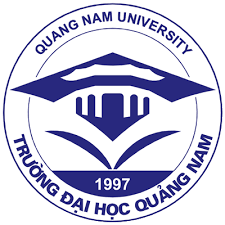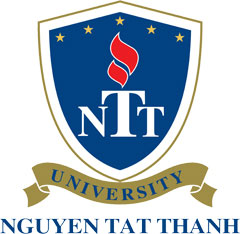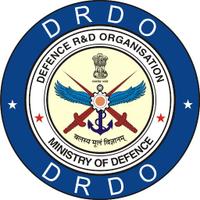Keynote speech: Fuzzy Rules Generation from Data with Comprehensibility, Completeness and Correctness

Bio
Phayung Meesad is currently an Associate Professor at the Department of Information Technology Management, Faculty of Information Technology, King Mongkut's University of Technology North Bangkok (KMUTNB). He is also the dean of the Faculty of Information Technology, KMUTNB. His research of interests are in the areas of Computational Intelligence, Machine Learning, Data Mining, Digital Signal Processing, and Business Intelligence.
Abstract
One of the benefits of fuzzy logic is a reasoning mechanism that allows data to be not only be able to make decision but also to understand cause-effect behind them. A suitable fuzzy system must be constructed in such a way that they are equipped with the comprehensibility, completeness, and correctness. Fuzzy rules can be either built from experienced experts or generated directly from data. The rules must be preserved both comprehensibility, completeness, and correctness. This talk presents details how to generate fuzzy rules that have comprehensibility, completeness, and correctness features so that the fuzzy system can make reasoning about the data while keeping the accuracy on the prediction. The method is as follows. Firstly, training data are cluster based on an increment learning fuzzy neural network. Secondly, initial clusters are mapped to fuzzy rules. Finally, the fuzzy rules are optimized based on comprehensibility, completeness, and correctness. Some experiments on pattern classification and time series prediction are illustrated.
Keynote speech: IoT & Smart Cities Emergences

Bio
Vijender Kumar Solanki, Ph.D is Associate Professor in the Department of Computer Science & Engineering, at CMR Institute of Technology, Hyderabad, TS, India. He has more than 10 years of academic experience in network security, IoT, Big Data and Smart City. Prior to his current role, he was associated with Apeejay Institute of Technology, Greater Noida, UP, KSRCE (Autonomous) Institution, Tamilnadu, India , Institute of Technology & Science, Ghaziabad, UP. He has attended orientation program at UGC-Academic Staff College, University of Kerala, Kerala & Refresher course at Indian Institute of Information Technology, Allahabad, UP, India. He has authored or co-authored more than 20 research articles that are published in journals, books and conference proceedings. He has edited or co-edited 2 books in the area of Big Data & Information Technology. He is associate editor of IJMLNCE, and editorial member of many reputed journal. Currently He is teaching graduate & post graduate level courses students in CMR Institute of Technology, Hyderabad, TS, India. He received Ph.D in Computer Science and Engineering from Anna University, Chennai, India in 2017 and ME, MCA from Maharishi Dayanand University, Rohtak, Haryana, India in 2007 and 2004, respectively and a bachelor's degree in Science from JLN Government College, Faridabad Haryana, India in 2001. He is guest editor with IGI-Global, USA, InderScience & Many more publishers. He can be contacted at [email protected]
Abstract
As the population is increasing and resources are decreasing, it’s the high time, when mostly developed countries are opting for smart home solutions. In the development of smart home, information technologies are playing important roles. Automation in term of, sensors based devices are proving smart picture by making life easier and saving lot of energy and resources. The use of Internet of Things has ensured the life realm easy and as the devices connectivity growth, life becoming more smarter. Against the background of economic and technological changes, it’s the right time to start understanding concept of Smart City.
Keynote Speech: The Impacts of Software Stability on the Art of Abstraction

Bio
Abstract
Fayad’s Software Stability is a radically new and a disruptive innovation in the field of software engineering. It is a new way of looking at how any software development effort should be undertaken, different from the approaches that we see today. Software Stability moves on from the traditional ways of software development where a specific software artifacts (many form of abstractions) are developed for every different specific application scenario to an approach that promotes factoring in the needs for the future as well and thus making the software thus developed, ‘stable’ over time, i.e.it need not be changed in a big way over and over again. Software Stability brings along qualities such as high returns on investment, complete and comprehensive domain and requirement analysis, high degree of reuse, adaptability, scalability, fine abstraction, and more to any software developed along the lines of this development methodology. Abstraction is the sole heart of software and knowledge engineering. Software Stability is the best approach for unified and stable abstractions.
Keynote speech: Big data Analytics: Recent Issues and Challenges

Bio
Prof. Akhilesh K. Sharma has done his B.E. from RGTU, M.E. from DAVV University (Indore) and PhD from JK-SPS University, Udaipur. He has won the best research proposal award by ACM and CSI Udaipur chapter. His area of interests include Big data analytics, deep learning, classification and clustering methods, Data mining and machine learning, cognitive intelligence etc. He has many technical research papers in international and national journals conferences. He has completed a few sponsored projects in the area of R&D, Thrust and Modernization. He has guided a number of scholars for B. Tech, M. tech and PhD degree in engineering discipline. He has visited several places for presenting research papers, chairing sessions and delivering lectures. He is a Senior Member of IUCEE, Member ACM, and Member CSI and Member compliance committee of MIR Labs Washington, USA. He has worked in reputed engineering institutes of India. He has organized conferences, faculty development programs, workshops and seminars. He has successfully organized NBA and NAAC accreditations in the institutes where he has worked. He has been expert committee member of various committees at AICTE, NBA, NAAC etc. Due to his meritorious contributions in the field of education, he has been awarded Best paper Award, NTU visiting research scientist Singapore etc. He has received Best teacher award for his contributions in academics. Currently he is working as Associate Professor in Manipal University Jaipur. He is an accomplished scientist with large number of research publications to his credit. He is actively involved in computational and experimental research work. Good number of research scholars work with him and contribute in scientific development. His interests in Deep learning, machine learning, Big data analytics has built a large fan following with many senior scientists visiting his laboratory. He is an asset to the institute and contributes in academic, research and development activities and leads his research community. He was the recipient of the Rajiv Gandhi sadbhavna award given by Mrs. Sonia Gandhi at 10 janpath. He visited IIT Indore to deliver guest lecture on Big data analytics and data mining issues. He was succeeded to fetched/received grant from DeItY (GOI) and successfully conducted industrial excursion and ESDM workshop for the university students. Recently he has been awarded by IEAE for the distinguished research excellence award for the year 2017. He also awarded for the best research proposal award by ACM and CSI in DocCon-2016. He has also offered consultancy services to IT industry as well in his domain.
Abstract
In the recent scenario the Big data has touched human life directly or indirectly. It has been observed that the growth of any industry also depends on big data analytics and affects organizations profitability as well. Prediction algorithms and machine learning intervention globally accepted and influenced thousands of industries. Its an enormous fact that understanding of ethical and social concerns of data mining and big data analytics is changing the mindset of the people. Society enjoying the benefits associated with that. Predictive analytics, including probabilistic and statistical models and application of large-scale data analysis protects the stakeholders rights. Various issues and challenges are also associated with big data analytics and this talk will be a curtain raiser on several untouched issues left out.In this Expert Lecture, Listener will develop knowledge of big data analytics and the various issues and challenges related to it. Audience will also learn how to design and implement various algorithms using MapReduce, a programming paradigm that allows for massive scalability across hundreds or thousands of servers in a Hadoop cluster. They will learn how the big data has improved recent web search and how online advertisement systems work.By the end of this keynote, audience will have a better understanding of the various applications of big data methods in industry and research.









































